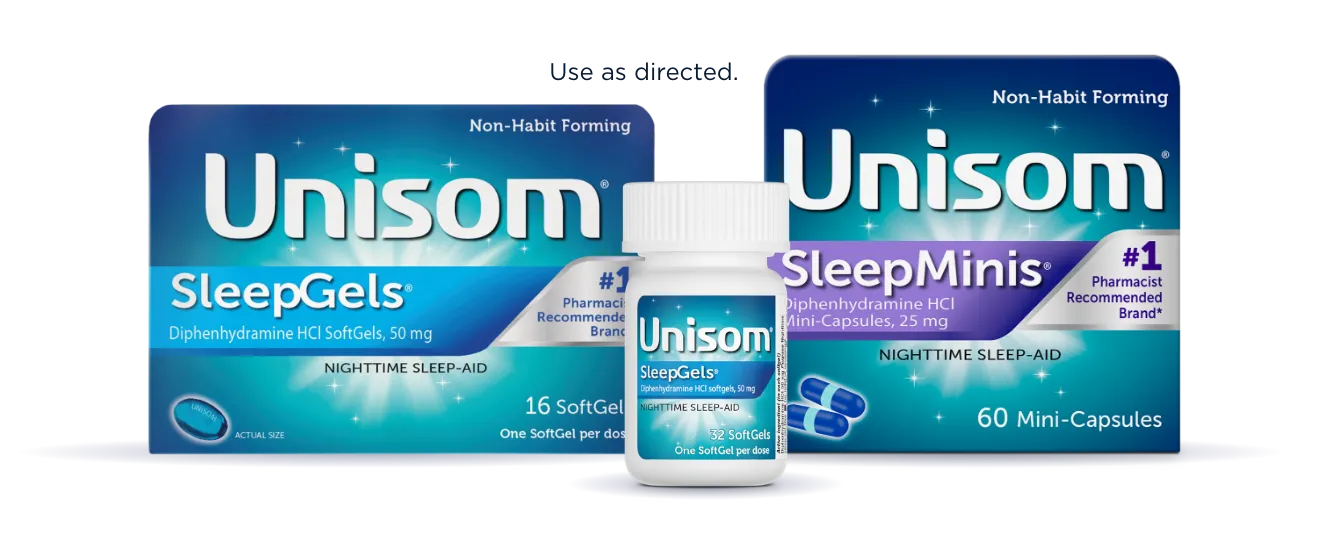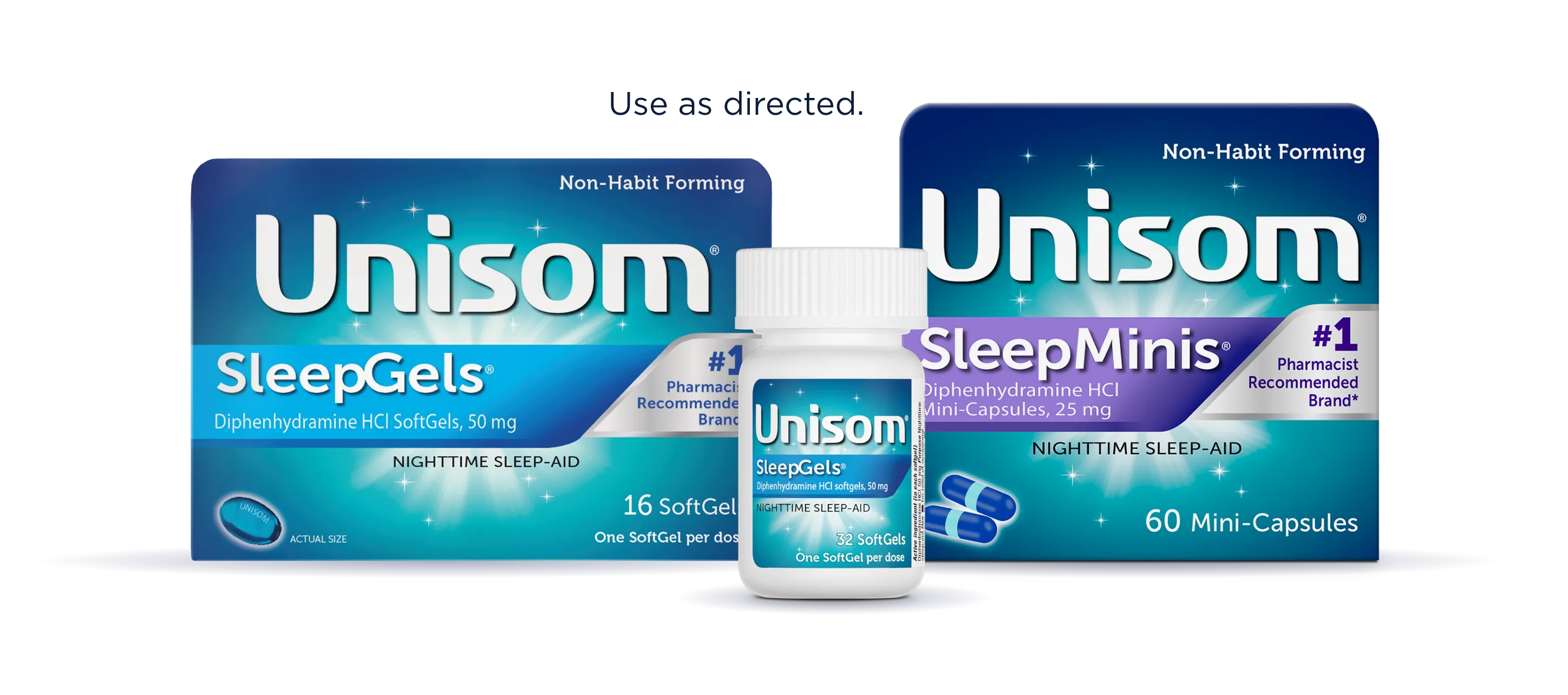Getting adequate sleep is critically important. It supports the normal functioning of our nervous system, and helps set us up for productive days.1
Too little sleep can compromise your nervous system, leave you feeling drowsy and unable to concentrate, impede decision-making, and make social connections difficult. Over time, it can cause emotional swings and can even compromise your immune system.1 And, of course, sleep-deprived drivers are notoriously dangerous.1
So if you’re struggling with occasional sleeplessness, it’s worthwhile to do whatever you can to figure out why. For ongoing sleep issues, consult a medical professional.
There’s no one reason for sleeplessness
Sleep and wakefulness are affected by brain chemistry, which is impacted by everything you eat and drink and all your activities. Food, medicine, dietary supplements, caffeine, alcohol, stress, noise, and countless other influences can make it hard to fall asleep or stay asleep. 2
The idea of sleep hygiene is equally important. It means your environment and bedtime habits all affect sleep.2
But once you’re tossing and turning or suffering from lack of sleep, it can be extremely difficult to think clearly enough to figure out why.
Experts recommend keeping track of your daily activities and sleep patterns. It may help determine what’s preventing you from getting a restful night’s sleep.2
A sleep diary can help
The easiest way to track your sleep activities is to log daily activities in whatever datebook, calendar, or diary you already use. It doesn’t matter whether it’s a fancy app or pen and paper.
If you don’t keep a datebook or want something specifically made to track sleep-related activities, you can download this easy-to-use diary. There are also numerous sleep tracking apps available for download.
How to keep a sleep diary
The critical thing is to make accurate notes about your experience. It will help you see trends or persistent behaviors so you can start to understand what may be keeping you up at night.2 If your sleeplessness becomes a real problem, you can share the diary with your physician.
Remember to stay current and update your diary as frequently as possible, so you don’t forget anything.2
Write down daily activities, including:2
-
Caffeine or alcohol consumption, at what time
-
What you eat and drink before bed, at what time
-
Your daily stress level, rated 1–10
-
Any drugs or medications you take
-
Your exercise sessions during the day, at what time
-
What emotions you experience
Write down bedtime activities, including:2
-
What time you go to bed and wake up
-
How long it takes to fall asleep
-
How long and how well you slept
-
The quality of your sleep, rated 1–10
-
When you were awake during the night
-
How many times you wake up during the night and how long it takes to fall back asleep
Start with one week
It's a good idea to keep a sleep diary for at least a week. But depending on your experience or lifestyle, you may want to continue for as long as it takes to understand why you’re not sleeping.
Once you’ve gathered a meaningful amount of information, you can start reviewing it, looking for patterns of behavior and experiences relative to the quality of your sleep.
Review your diary, and ask yourself:2
-
Am I giving myself enough time for sleep?
-
Is my sleep schedule consistent?
-
Do I lie in bed sleepless? How long and how often?
-
Is my sleep disrupted? Why? By what?
-
Do I wake feeling rested?
-
Do I feel drowsy during the day?
-
Am I taking naps that may affect sleep at night?
-
Is something I’m eating, drinking, or doing affecting my sleep?
-
Are alcohol, caffeine, or medications affecting my sleep?
When to see a doctor
If your lack of sleep disrupts your daily activities, demeanor, or health, consider reaching out to your physician or healthcare provider.
Here are some warning signs:²
- You have persistent trouble falling asleep or staying asleep
- You are having trouble thinking clearly, paying attention, maintaining physical activity
- You are moody or irritable
- You get extremely sleepy during the day, even dozing off
- You snore loudly, choke, or gasp
Rest assured
Unisom® is the #1 doctor-recommended OTC sleep-aid brand, with a range of options to help you fall asleep and wake up feeling refreshed.
Unisom® SleepGels® contain the histamine blocker sleep-aid diphenhydramine HCI. Blocking histamine production can help you fall asleep faster and stay asleep.
Unisom® SleepTabs® contain doxylamine succinate, which is a clinically proven histamine blocker that works in a similar fashion to diphenhydramine. Unisom® SleepTabs® can help you fall asleep 33% faster and get a full night's sleep.
Find the Unisom® product that’s right for you.
Download the Unisom Sleep Diary.
Professional References
1. American Sleep Association. “What is Sleep and Why is It Important?” American Sleep Association. (http://www.sleepassociation.org). 2021
2. Eric Suni. Sleep Foundation. “Sleep Diary” . Sleep Foundation (http://www.sleepfoundation.org). February 25, 2021.
Related articles
†This statement has not been evaluated by the Food and Drug Administration. This product is not intended to diagnose, treat, cure or prevent any disease.





